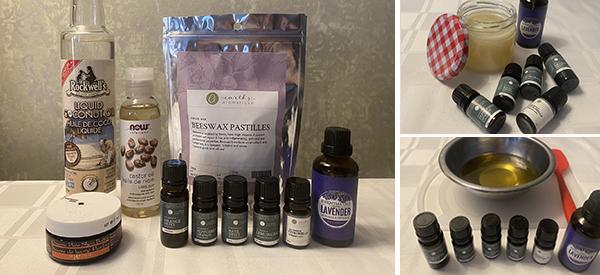
Your Gut Called – It Wants Kombucha
Most health enthusiasts are turning to kombucha, the effervescent fermented tea, as a potential pathway to holistic wellness. This bubbly drink is packed with probiotics and antioxidants, which can enhance your gut health and overall vitality. However, it’s crucial to consider factors like added sugars and possible side effects, especially if you have certain health conditions. By incorporating kombucha into your daily routine, you may elevate your wellness journey—just ensure that you pay attention to how your body responds.
Key Takeaways:
- Kombucha is a fermented beverage that offers potential probiotics, which may contribute to improved gut health.
- Regular consumption of kombucha may support digestion and enhance the body’s ability to absorb nutrients.
- The drink contains antioxidants that could help combat oxidative stress and support overall wellness.
- Kombucha might have mood-boosting properties due to its fermentation process, which can enhance mental well-being.
- Incorporating kombucha into your daily routine should be done mindfully, considering individual tolerance and health conditions.
The Fermentation Factor: Unpacking Kombucha’s Probiotic Promise
Kombucha’s probiotic potential stems from its unique fermentation process, transforming sweetened tea into a tangy, effervescent beverage. During fermentation, beneficial bacteria and yeasts proliferate, creating a rich source of living probiotics that can support gut health and overall wellness. By incorporating just one daily serving into your routine, you may unlock a treasure trove of health benefits associated with these microbes, contributing to your journey toward holistic wellness.
The Science Behind Fermentation
The magic of fermentation lies in the symbiotic colony of bacteria and yeast, commonly referred to as SCOBY. This SCOBY feeds on the sugar in the tea, producing not only probiotics but also organic acids, vitamins, and enzymes that may enhance digestion and nutrient absorption. The transformation is a delicate balance between microbial activity and environmental conditions, where factors like temperature and time can significantly alter the final product. Through this process, you gain access to a living elixir brimming with culinary and health benefits.
Key Probiotic Strains and Their Health Benefits
Several key probiotic strains thrive in kombucha, each offering unique health benefits. Strains such as Lactobacillus promote gut health by balancing intestinal flora, while Bifidobacterium is known for its role in enhancing immunity. Another standout is Glucuronobacter, which may help detoxify your liver. Regular consumption of these probiotics can lead to improved digestion, better nutrient absorption, and enhanced immune response, which are imperative for maintaining holistic wellness.
The presence of specific strains like Lactobacillus acidophilus not only aids in converting lactose into lactic acid, which helps those with lactose intolerance, but also supports the synthesis of imperative B vitamins. Meanwhile, Bifidobacterium bifidum has been linked to the reduction of gastrointestinal disorders such as IBS and diarrhea. These probiotics create a flourishing ecosystem in your gut, allowing your body to better fend off pathogens, balance inflammation, and facilitate overall well-being. Embracing kombucha could thus become a simple yet powerful addition to your health regimen.
Sip Your Way to Balance: Kombucha’s Role in Gut Health
Striking a harmonious balance in your gut can be a key factor in achieving overall wellness, and kombucha is a potent ally in this journey. This fermented tea brims with probiotics, which are beneficial bacteria that support digestion and enhance nutrient absorption. Regularly sipping on kombucha can foster a healthier gut microbiome, potentially leading to improvements in not just physical health but also mood and energy levels. As you incorporate this tangy beverage into your daily routine, you might just find your gut feeling more balanced and resilient.
The Gut-Brain Connection
The relationship between your gut and brain is more intertwined than you might realize. This connection is driven by the gut-brain axis, a communication network that influences mood and cognitive functions. With approximately 90% of serotonin produced in the gut, ensuring proper gut health through probiotics, like those found in kombucha, can positively impact your emotional well-being. Regularly consuming kombucha can help support this axis, potentially improving both mental clarity and emotional balance.
Kombucha as a Digestive Aid
Kombucha serves as a remarkable digestive aid, offering your body the support it craves for optimal gastrointestinal health. The probiotics, enzymes, and organic acids present in kombucha work together to enhance digestion, alleviating issues such as bloating and gas. Furthermore, the presence of glucuronic acid in kombucha may help detoxify the liver, creating a more efficient digestive process overall.
Upon drinking kombucha, you’re introducing a powerhouse of digestive benefits. The fermentation process results in the production of acetic acid, which not only gives kombucha its tangy flavor but also aids in nutrient absorption and acts as a natural appetite suppressant. The presence of various enzymes helps break down food more effectively, which can lead to improved digestion and a reduction in uncomfortable symptoms. Many individuals report a decrease in digestive discomfort after incorporating kombucha into their daily routine—an invitation for you to sip your way to a more harmonious digestive experience.
Energy Boost or Crash? Evaluating Kombucha’s Caffeine Content
Kombucha typically contains a modest level of caffeine due to the tea base used during fermentation. Depending on the type of tea and brewing time, your brew might deliver anywhere from 8 to 30 milligrams of caffeine per 8-ounce serving. While this amount is significantly lower than a standard cup of coffee, which contains about 95 milligrams, it still has the potential to affect your energy levels, providing a gentle lift without the harsh crash associated with higher caffeine sources.
Comparing Kombucha to Other Energy Sources
| Source | Caffeine Content (per 8 oz) |
|---|---|
| Kombucha | 8-30 mg |
| Coffee | 95 mg |
| Black Tea | 40-70 mg |
| Energy Drinks | 80-160 mg |
How Caffeine Affects Your Wellbeing
Understanding how caffeine influences your wellbeing is imperative for making informed choices about your beverage consumption. Caffeine acts as a stimulant that can enhance alertness and boost your mood by blocking adenosine receptors in the brain. However, excessive intake may lead to increased heart rate, anxiety, or sleep disturbances. Maintaining a balanced approach will help you reap the benefits of caffeine without experiencing negative side effects that could derail your wellness journey.
Subtle shifts in caffeine consumption can have profound implications for your energetic state and overall health. Regular, moderate intake of caffeine—like what you find in kombucha—can improve cognitive function and enhance physical performance. Conversely, overindulging in high-caffeine drinks can lead to dependency and withdrawal symptoms like fatigue, irritability, and headaches. By mindfully choosing quantities that suit your lifestyle, you can harness caffeine’s benefits while mitigating potential risks to your wellbeing.
Beyond the Brew: Integrating Kombucha into a Holistic Lifestyle
Embracing kombucha is just the beginning; integrating this fermented drink into your daily routine can enhance your overall wellness. Approach your lifestyle holistically by incorporating kombucha alongside other nourishing practices such as yoga, meditation, and mindful eating. Staying attuned to your body’s needs while enjoying a daily glass of this probiotic elixir can help cultivate a greater sense of well-being and balance. By being intentional about these choices, you create a supportive environment for integrating kombucha into both your diet and your daily rituals.
Complementary Wellness Practices
Pairing kombucha with complementary wellness practices can amplify its benefits. Engaging in activities like regular exercise, deep breathing, and mindfulness meditation enhances the gut-brain connection, allowing you to digest not just food, but experiences better. Consider making time for outdoor walks, stretching, or practicing gratitude to create a holistic atmosphere that supports your kombucha-drinking habit and helps maintain your overall health and mental clarity.
Creating a Daily Wellness Ritual
Transforming your daily kombucha consumption into a wellness ritual can significantly enhance its positive effects. Set aside a specific time each day to enjoy your drink, creating a personal moment of mindfulness and reflection. You could pair this practice with meditation or journaling, allowing you to harness the probiotics in kombucha while grounding your thoughts and feelings. This simple act of self-care nurtures both your body and mind, cultivating a more profound sense of peace and balance.
To create a truly enriching daily wellness ritual, choose a dedicated spot where you can savor your kombucha without distractions. This could be a cozy corner in your home or a peaceful outdoor setting. As you sip, listen to calming music or practice deep breathing exercises, fully immersing yourself in the experience. Consider varying your kombucha flavors to enhance your sensory enjoyment, and use this time to reflect on your goals or express gratitude. By fostering this consistent, intentional practice, you elevate your daily kombucha experience into a holistic act of wellness, reinforcing your commitment to your health journey.
Navigating the Market: Choosing Quality Kombucha
Selecting the right kombucha amidst a saturated market can feel overwhelming, but your journey towards holistic wellness starts with quality. Look for brands that emphasize natural ingredients, minimal processing, and transparency in their brewing practices. Seek out products that feature live cultures, contain little to no added sugars, and avoid artificial preservatives. Moreover, your choice should extend beyond taste to the company’s reputation; consider those with good reviews and ethical business practices.
Label Literacy: What to Look For
Understanding kombucha labels is vital for making informed choices. Pay attention to the live probiotic cultures, as these are necessary for gut health. Check the sugar content, which can vary significantly; ideally, it should be under 5 grams per serving. Additionally, examine the acid levels, as higher acidity can signal fermentation issues, while also being mindful of the expiration date to ensure freshness.
Homemade vs. Store-Bought: Pros and Cons
Pros and Cons of Homemade vs. Store-Bought Kombucha
| Homemade Kombucha | Store-Bought Kombucha |
|---|---|
| Cost-effective; cheaper than buying multiple bottles | Convenient; readily available for purchase |
| Customization of flavors and ingredients | Consistent taste and quality standardization |
| Control over sugar and caffeine levels | Variety of brands and brews to choose from |
| Community-building through sharing the brewing process | Less time-consuming; requires no brewing knowledge |
| Can harbor risks if proper fermentation techniques aren’t followed | May contain added preservatives and artificial ingredients |
| You can experiment with fermentation time and SCOBY health | Often possesses a longer shelf-life |
| Requires initial setup for brewing | May have higher price points for premium brands |
| Quality control can vary depending on your methods | Brands generally maintain strict quality controls |
| Requires ongoing maintenance of equipment and SCOBY | Readily accessible without hassle |
| Potential for more complex flavors with time and patience | Immediate enjoyment with less investment |
Choosing between homemade and store-bought kombucha involves weighing personal preferences and lifestyle. While making your own brew allows for creativity and control over ingredients, it also demands time and commitment. On the other hand, store-bought options provide convenience and a plethora of flavors; however, you might miss out on some health benefits or unique profiles that come from personal brewing. Ultimately, let your wellness goals guide your choice for the best kombucha experience.
To wrap up
Upon reflecting, incorporating a daily dose of kombucha into your routine can serve as a beneficial step towards holistic wellness. With its blend of probiotics, antioxidants, and vitamins, you may find it enhances your overall health while promoting a balanced gut microbiome. However, as with any wellness trend, it’s imperative to listen to your body and consult with a healthcare provider to ensure it’s right for you. Ultimately, embracing this fizzy beverage could be a delicious and impactful addition to your journey toward optimal wellbeing.
FAQ
Q: What exactly is kombucha and how is it made?
A: Kombucha is a fermented tea beverage that has gained popularity for its potential health benefits. It is made by fermenting sweetened tea using a symbiotic culture of bacteria and yeast (SCOBY). During the fermentation process, the SCOBY converts sugars into alcohol and acids, giving kombucha its characteristic tangy flavor and slight carbonation. This process also produces various beneficial compounds such as probiotics and antioxidants.
Q: How might a daily dose of kombucha contribute to holistic wellness?
A: Incorporating kombucha into your daily routine could support holistic wellness in several ways. The probiotics in kombucha may promote gut health by balancing the microbiome, which is crucial for digestion and nutrient absorption. Additionally, its antioxidants can help combat oxidative stress, thereby supporting overall cellular health. Many people also report improved energy levels and mood stabilization from regular consumption, contributing to both physical and mental well-being.
Q: Are there any potential side effects of drinking kombucha daily?
A: While many people enjoy kombucha without issues, some may experience side effects, particularly if consumed in excess. Possible side effects include digestive discomfort, bloating, or an upset stomach due to the high acidity and sugar content. It’s also important to note that homemade kombucha may carry risks if not prepared correctly, as it can become contaminated. Starting with small servings and paying attention to how your body responds can help mitigate these risks.
Q: Is kombucha suitable for everyone, and are there any specific populations who should avoid it?
A: While kombucha can benefit many people, certain groups may want to exercise caution or avoid it altogether. Pregnant or breastfeeding women, individuals with compromised immune systems, and those with specific health conditions such as diabetes should consult with a healthcare professional before incorporating kombucha into their diets. Additionally, people who are sensitive to caffeine may want to consider that kombucha is made with tea, which contains caffeine.
Q: How much kombucha should one consume daily to potentially reap its benefits?
A: The recommended intake of kombucha can vary based on individual tolerance and preferences, but a general guideline is to start with 4 to 8 ounces (about 120 to 240 milliliters) per day. This moderate amount allows you to assess how your body reacts without overwhelming your system. If you enjoy it and feel good, you can gradually increase your intake, but moderation is key to avoid any adverse effects.
You May Also Like:
Fennel Tea: A Soothing Brew with Ancient Roots and Modern Benefits
How to Recognize a Heart Attack and What to Do Next (Video)




